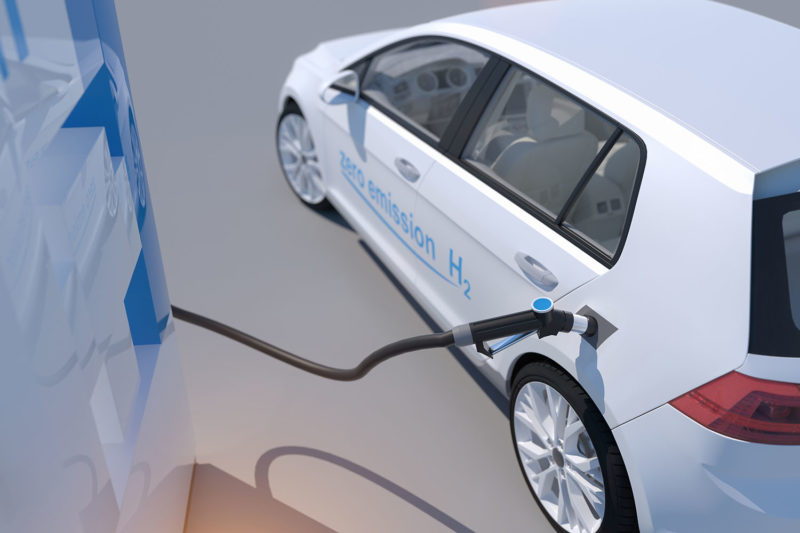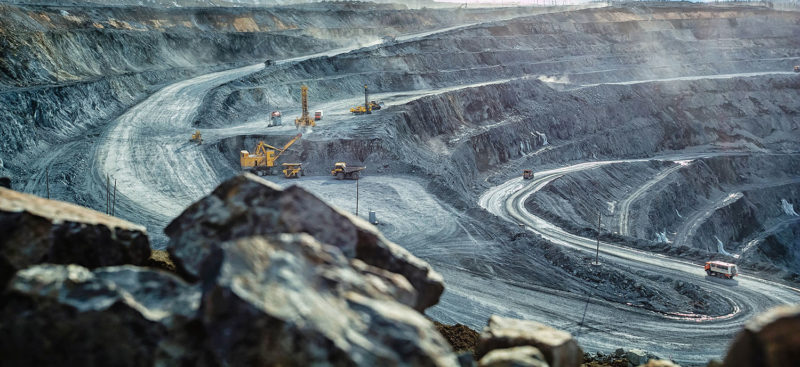

Clean hydrogen, a real alternative?
Clean hydrogen is presented as the fuel of the future, promising to provide carbon-neutral energy. However, it is not the first time that hydrogen has been hailed as the energy of the future only to run up against high production costs and difficulties with transport and storage, delaying its market introduction. Is it here to stay?
Hydrogen produced from fossil fuels, usually by the process of reforming with natural gas, is mainly used in the chemical and refining industry, and its production is responsible for the emission of 830 million tonnes of carbon dioxide per year. Yet it is less toxic and more easily dispersed than natural gas.
While clean hydrogen will largely avoid this pollution, there are still drawbacks to be addressed. Currently, hydrogen storage requires extremely high pressure and is therefore too expensive and inefficient for widespread use in the automotive industry.
China, known as the Asian giant and the world’s leading producer of hydrogen made from hydrocarbons, and other countries such as Australia, Saudi Arabia, Germany, Spain, and Chile are beginning to make the transition to clean hydrogen with multi-million dollar projects that suggest green hydrogen is here to stay.
What is green hydrogen?
Although hydrogen is the most abundant chemical element in the universe, and the third most abundant on the Earth’s surface after oxygen and silicon, it is not a primary energy form per se, but a chemical compound, which exists in combination with other elements, and which can have energy uses.
Just as conventional hydrogen obtained from hydrocarbons requires large amounts of energy and is a costly process, clean hydrogen, also known as renewable hydrogen or e-hydrogen, is generated from electricity from renewable energy sources, through a process called electrolysis of water. Electrolysis is a chemical process that uses electricity to separate hydrogen from oxygen in the water.
The fact that it emits no pollutant gases when produced makes it 100% sustainable, but the production costs are higher than with traditional hydrogen. Despite this, energy experts expect the price of clean hydrogen production to drop considerably over the next few years to match that of hydrogen produced from hydrocarbons.
The European Union does not want to be left behind
Europe wants to avoid losing its leadership in green hydrogen to China, as happened with solar panels. To this end, it has launched an industrialisation plan within the framework of the Horizon Europe project, to promote and accelerate research and development of green hydrogen with an initial investment of 2 billion euros.
The aim of the project is to scale up green hydrogen electrolysers, which are used to split water into hydrogen, and thus reduce the cost of a technology that is currently too expensive to compete in the market. The goal is to build hydrogen clusters deployed across Europe, and to bring together hydrogen-related infrastructures, as has been done with the electricity grid.
The introduction of new renewable energy sources in the coming years will be crucial for the environment. We, the common people and the planet, can now welcome the geopolitical competition between the major global economic powers to lead this new energy source.
11Onze is the fintech community of Catalonia. Open an account by downloading the super app El Canut on Android and Apple and join the revolution!





Tot el que sigui 100% sostenible, no contamine, no generi residus i els costos de producció no siguin cap bestiesa, benvingut sigui!#AixíSí
Totalment d’acord, Jordi! Aquesta és la direcció correcta 😉
Segur que l’hidrògen tindrà molt pes en el futur, però crec que s’hi estan invertin diners des de governs i grans empreses per anar substituint paulatinament la dependència fòssil, però ho fan per que no els hi queda un altre remei, i em fa por que es converteixi en el mateix oligopoli que tenim ara però “verd”, alguna cosa hi haurem guanyat. Però penso que som cadascun de nosaltres que ens hem d’enpoderar prodoint la nostra pròpia energia km zero, serem menys depenents d’ ells
Exactament, no ho sabem, senzillament perquè es parla molt poc de l’hidrogen. Segurament que el més costos serà produir-lo a l’estat necessari perquè faci de combustible i transportar-lo… En pots estar ben segur que els estats i governs no voldran pas perdre la font d’ingressos, que tenen amb el petroli, i alguna cosa s’inventaran perquè hàgim de pagar l’hidrogen i l’electricitat pels vehicles, amb els corresponents impostos, com la benzina. Moltes gràcies pel teu comentari, Josep Maria!!!
Fora bo que s’uneixin esforços per triar una bona alternativa a les actuals, sigui hidrogen o altre. El que s’ha de vigilar que, com altres vegades, per interessos geopolítics es promocionin altres iniciatives menys òptimes.
Sí, això estaria molt bé, però no té per què ser només una opció, n`hi poden haver més d’una o dues… Moltes gràcies pel teu comentari, Pere!!!
👏
Gràcies, Daniela!!!
👌
Gràcies, Joan!!!
Felicitats per compartir articles en temes tan punters. Queda molt per avançar la tecnologia encara. El e-hydrogen sembla que té un gran futur com eina per emmagatzemar el sobrant d’energia renovable (hidràulica, eòlica i solar), com a substitut de les actuals nuclears i centrals de cicle combinat, que cremen gas natural (un combustible fòssil a evitar). També se li esbrina un futur que promet per transport marítim i de camions en grans distàncies. En canvi, el futur pinta força pobre pels turismes.
A tu, Jaume per llegir-nos! Els nostres companys d’editorial fan un treball excel·lent
Ok 👍
Gràcies, Josep!!!
Una molt bona noticia,hidrogen verd cal estar amatents i pensar que fora una molt bona inversió
Esperem que si, però encara haurem d’esperar uns anys per saber la resposta.
Ja s’està trigant a implantar aquesta nova font d’energia.
Doncs si i esperem que aviat
Article interessant. Cal veure-les venir, anticipar-se als problemes. Recomanable clicar l’ enllaç 830 milions.
Doncs, sí; sembla que l’e-hidrogen pot ser una energia tan neta i renovable com l’energia solar. Vejam si no ens quedem enrere aquest cop!
Gràcies per comentar-ho, Mercè!